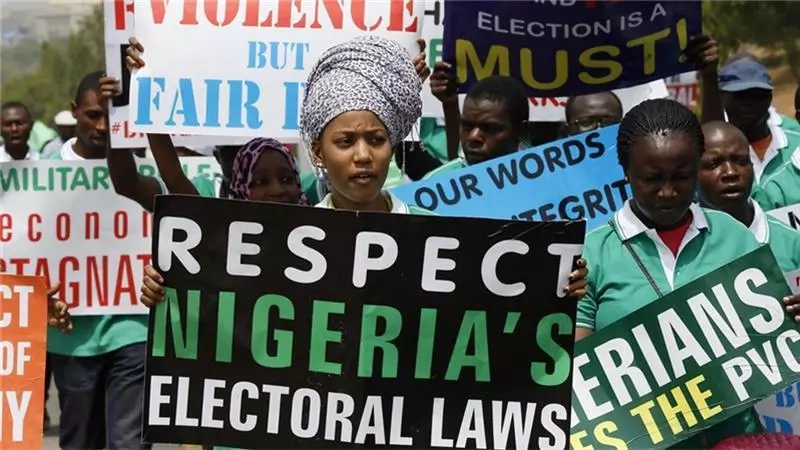Politicians are at their game again. All over the land, it is one political crisis or the other, arising from the primary elections to decide the candidates of the political parties. The Electoral Act requires that the Independent National Electoral Commission, INEC, should issue guidelines to political parties to determine the candidates to represent them during elections, and thereafter forward their names to INEC. For the 2021 governorship election in Anambra State, INEC had set November, 2021 for the conduct of the main election. This literally threw fire into the camps of all the political parties, and indeed exposed the hypocrisy of our democratic pretenses. It is clear beyond any shadow of doubt that Nigerian politicians are not ready for true democracy, in the proper way that the modern concept of free choice is understood and practiced. In all the locations where the sham primary elections were held, it was impunity, violence, thuggery, brigandage and total lawlessness, all over. All that the politicians wanted was just to anoint candidates and impose them on the political parties.
Before now, the courts have helped to douse the tension arising from party primary elections, by insisting that political parties be allowed some measure of discretion in determining the candidate to represent them in an election. It just accords with reason that since it is the political party as an entity that has been registered by law through INEC, then the candidate should belong to the party, at least until we get to the point of fielding independent candidates. The snag in this has always been the issue of imposition, substitution and dumping of candidates. In recent times however, the Courts have compounded the problem and helped to wreak havoc on the conduct of primary elections, with different and inconsistent orders and judgments. In June, 2020, the Honourable Chief Judge of the Federal High Court issued a circular meant to address this growing anomaly. It reads thus:
“It is common knowledge that elections will be held in some States in Nigeria in the near future. The normal Party Conventions and Primaries with attendant political maneuvering have already commenced amongst various political parties, which very often culminate in the institution of cases in the Courts.
In this regard, Your Lordships are strongly advised not to grant any Ex-parte injunctive orders in any political matter brought before Your Lordships. Furthermore, Your Lordships are equally advised not to entertain matters of which the cause of action has arisen from outside your Judicial Divisions.”
Notwithstanding this clear directive, a Federal High Court sitting in far-away Jigawa State in the North was still able to entertain a case relating to the primary election in Anambra State, issuing orders in respect of a subject matter outside its jurisdiction. Other cases on the Anambra Governorship primary were also filed in Imo State. When these cases eventually got to the Court of Appeal, the higher court upbraided the two High Court judges in Jigawa and Imo States respectively and even the senior lawyers that filed the cases on behalf of their clients, recommending disciplinary actions by their supervising organs. Nothing has happened or will likely happen.
Generally, political parties in Nigeria seem to have a problem with any arrangement that would tie their hands to any particular candidate, for any election. If you ask them to conduct election to determine their candidates through secret ballot, the winner thereof may not resonate with the expectation of the party leadership; if you ask them to choose their candidates through indirect primary, the likelihood of subsequent substitutions will become endless, as even on the eve of an election, politicians still want to change the rules.
The import of the disorderliness, arbitrariness and manipulations of the party primaries to our national development is in relation to good governance. If the candidate is not the true choice of the people through any form of free and fair election, then there is no social contract that can generate any form of allegiance, from the said candidate, to drive performance, if and when he gets to power. The contractual obligations between the leader and the led is the process of free choice, whereby in canvassing for the votes of the led, the leader is tied to certain programmes of action to be executed upon his election, in exchange for the votes of the led. Once this bond is missing, then there is no basis for the led to expect any measure of performance from the leader, the latter who will only show allegiance to his source of power, either derived from the party leadership, from godfathers, from rigging or manipulation or from financial inducement.
Democracy is a game of choice, whereby the people as a block, form the basis and nucleus of governance. To say that power belongs to the people means that they ultimately decide who should exercise power on their behalf. This right of choice in the people also postulates that if and when there is a disconnect between the people and the leader, for reasons of lack of performance or abuse of power, they should be able to exercise their power to replace such a leader. The Nigerian case has been an exception to all democratic conducts, especially in the choice of the leader, wherein the people now seem to have no say at all.
To be continued tomorrow
Adegboruwa is a senior advocate of Nigeria (SAN).



